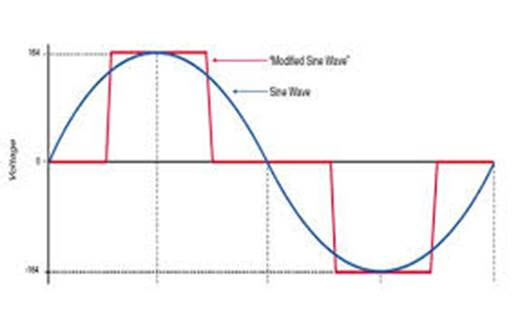Generators for Portable Power
Contents
Generators
This article is based upon information gleaned from Bose® engineers and users at the Bose® Pro Portable PA Community.
Whenever possible, it is recommended that AC power be used to power the L1 .
On those occasions where AC power is not readily available (for example, at an outdoor gig) you may find yourself having to power your L1 through a portable generator.
Portable power generators are usually small diesel or regular gas engines with an electric generator attached. The drawbacks are that they are generally heavy, smelly, and may produce questionable power quality. In addition, because of the engine noise, you will have to locate the generator fairly far away to keep it from interfering with the sound of your performance.
Considerations
If you are in a situation where you must utilize an electric generator to power the L1 , there are several things to consider.
- Although the L1 Model I / L1 Model II system is very efficient, it produces 500 Watts of power and therefore requires a good input power supply that is rated at least 750-1000 Watt. Guidelines:
- L1 Model 1S or L1 Model II, draws up to 750 Watts per system
- L1 Compact draws up to 100 watts
- T1 ToneMatch Audio Engine draws up to 100 watts
- Classic: L1 Classic 750 Watts of power and therefore requires a good input power supply that is rated at least 1400 Watts. As a general guideline, you should budget at least 1000 Watt per system.
- Only use inverter[1] type generators. These generators will provide clean sine wave power that makes them safe for use with sensitive equipment such as computers, laptops, and the L1 . Generators of the type commonly used in construction should be avoided.
- If performing with the L1 at a gig where an unfamiliar generator is being used, it is advisable to bring a multimeter and monitor the output voltage of the generator. If the reading is above 140 V or below 100 V, then the Bose system may not work reliably.
- Beware if you are at a gig where you must plug into a generator that also has something with a large compressor (like a refrigerator or freezer) plugged into it. When the compressor shuts off, there may be an excess of energy going through the line causing a significant spike in voltage going to the L1 . Conversely, when the compressor starts up, there may be a significant power drop-off from the L1 .
Recommendation/Review
The Honda EU2000i is highly recommended at the Bose® Pro Portable PA Community by several L1 users if a generator is regularly required for gigs. The EU20001 has AC output of 120V 2000W maximum (16.7A) and uses inverter technology to provide the kind of clean power that is safe for use with the L1 . The EU2000i is relatively quiet (59 dB) and light (46.3 lbs. dry) compared to other portable generators in its power specifications range. The fuel tank capacity is 1.1 gallons and can run for 4 continuous hours on full load, or 15 hours at 1/4 load.
Kyle-at-Bose on the Bose® Pro Portable PA Community posted the following Recommended Generator
"Hi all, Cap from the forum and I have been discussing how he's used a generator with two double-bass systems and other gear without any problems. Here's his recommendation:
Honda EU2000i generator (15 amps continuous, 18 in a pinch). OK'ed for use in US National and California State Parks (tough regulations).
Cap uses a Furman power conditioner that gives him a readout in terms of available voltage as well as amperage draw.
His system:
• Two Bose double-bass systems
• Numark RM-6 mixer
• Two SONY UHF WRR-802 receivers
• Peavey Kosmos sub-harmonic generator
• Small reading lights to illuminate the console
• LED sign
• Laptop voltage adapter
All of these are running directly out of the Furman power conditioner.
According to Cap, "Pumping the system to at least 60% of capacity, did not draw more than 6 amps, peak. That means that the Bose system, in a typical DJ application (excluding lights, fog, haze, bubble machines and that ilk), an inverter-style generator of 1000-1500 watts would provide more than ample overhead."
Hope this helps anyone who may need to use a generator.
Kyle-at-Bose"
Battery Power for L1 Model 1S or L1 Model II
Preliminary report see: Portable Power Stations for L1 Systems
Battery Power Not Recommended for L1 Classic
Hilmar-at-Bose tells us that battery power is not recommended [2]
A sufficiently sized generator will work with our system although they tend to be fairly noisy.
Car battery converters (so called "inverters") are a little problematic. Most inverters don't work well with our highly-efficient Switch Mode Power Supplies and need to be 2 to 3 times oversized. That draws really big amounts of current from the car battery and the wiring from the battery to the inverter needs to be able to handle that. This is by no means a trivial job, so we recommend against it.
Battery / Inverter
Inverters can be pretty abusive to many systems. Many create a “stepped sine wave” (the red trace below). Those edges can wreak havoc in many electronic systems, especially switching amps and other circuits with critical timing requirements. They can also cause microprocessors to misbehave. Further, these waveforms can also age electrolytic caps much faster than true sine waves. We do not recommend the use of battery inverters for any electronics you care about.
Acknowledgements
Hilmar-at-Bose, Cap Capello, Kyle-at-Bose. Thank-you for your information.
References:
http://powerequipment.honda.com/generators/inverter-generator-advantages
http://www.yamahaef2000is.com/conventional_generator_vs_inverter_generator.html
